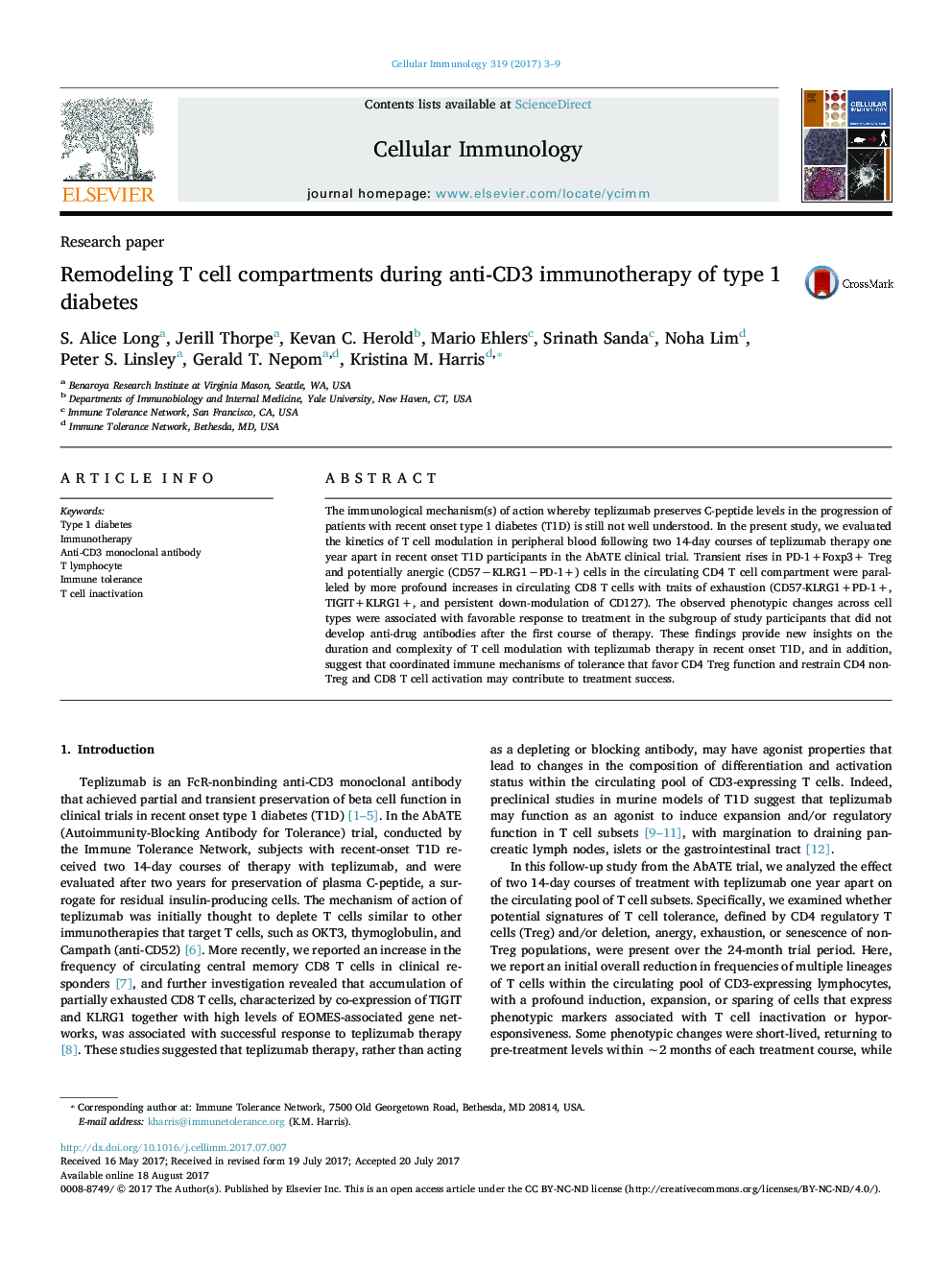| Article ID | Journal | Published Year | Pages | File Type |
|---|---|---|---|---|
| 5530616 | Cellular Immunology | 2017 | 7 Pages |
â¢Duration and complexity of T cell modulation with teplizumab in type 1 diabetes.â¢An overall reduction in T cell populations was observed with each treatment course.â¢Teplizumab coordinated increases in inhibitory molecules on CD4 and CD8 T cells.â¢Each treatment course reduced expression of CD127/IL-7Ra on CD8 T cell subsets.â¢Immunological changes associated with treatment success in ADA-negative subjects.
The immunological mechanism(s) of action whereby teplizumab preserves C-peptide levels in the progression of patients with recent onset type 1 diabetes (T1D) is still not well understood. In the present study, we evaluated the kinetics of T cell modulation in peripheral blood following two 14-day courses of teplizumab therapy one year apart in recent onset T1D participants in the AbATE clinical trial. Transient rises in PD-1+Foxp3+ Treg and potentially anergic (CD57âKLRG1âPD-1+) cells in the circulating CD4 T cell compartment were paralleled by more profound increases in circulating CD8 T cells with traits of exhaustion (CD57-KLRG1+PD-1+, TIGIT+KLRG1+, and persistent down-modulation of CD127). The observed phenotypic changes across cell types were associated with favorable response to treatment in the subgroup of study participants that did not develop anti-drug antibodies after the first course of therapy. These findings provide new insights on the duration and complexity of T cell modulation with teplizumab therapy in recent onset T1D, and in addition, suggest that coordinated immune mechanisms of tolerance that favor CD4 Treg function and restrain CD4 non-Treg and CD8 T cell activation may contribute to treatment success.
